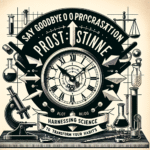
Introduction
In a world where the nine-to-five grind often leaves us yearning for more, the idea of transforming a beloved hobby into a sustainable career resonates with many. The journey from desk to passion, transitioning from a hobby to a real entrepreneurial hustle, not only promises financial gain but also personal fulfillment. From Hobby to Hustle: Turning Your Passion into a Profitable Career is not just a catchy phrase; it’s increasingly becoming a viable pathway for modern entrepreneurs. In this article, we will explore the steps to weave your passions into a profitable venture, supported by real-world examples and actionable strategies.
Understanding Your Passion
Identifying Your True Passion
Before diving into the logistics of turning hobbies into income, it’s essential to identify what truly ignites your passion. Ask yourself:
- What activities make you lose track of time?
- What do friends or family always compliment your skills about?
- What challenges have you overcome that might inspire others?
Case Study: Consider Jane, a software engineer who found solace in painting during her weekends. Initially a pastime, her artwork caught the attention of friends, prompting her to open an Instagram art account. Jane’s engagement helped her recognize her passion and the potential market for unique art pieces.
Market Viability of Your Passion
Once you’re clear on your interests, evaluate the market:
- Is there demand? Research your niche to find out if others share your enthusiasm.
- Who are your competitors? Understand who else is in the arena and gather insights on their offerings.
Table 1: Passion vs. Market Demand
| Hobby | Market Demand Indicator |
|---|---|
| Painting | High on platforms like Etsy |
| Blogging | Monetizable through affiliate marketing |
| Crafting | Growing DIY culture |
Building Your Brand
Defining Your Unique Value Proposition (UVP)
Before launching into your hustle, determine what sets you apart:
- What unique skills do you have?
- How can you address specific problems in your market?
Analysis: Jane’s UVP was her ability to combine technical skills with artistic expression, producing tech-themed artwork that resonated with a niche audience. This uniqueness laid the foundation for her brand.
Crafting a Compelling Brand Story
Your journey has the potential to captivate an audience. Share your story—how you started, the challenges you faced, and why you’re passionate about your work. Authenticity fosters connection.
Case Study: Take inspiration from Mark, a former corporate lawyer who transitioned into handmade furniture. His marketing strategy involved sharing the frustrations of corporate life juxtaposed with his passion for crafting, which built trust with his customer base.
Business Planning Essentials
Creating a Business Plan
A well-structured business plan serves as a road map. It should detail:
- Goals: Short-term and long-term objectives.
- Target Audience: Who you are selling to and what they need.
Table 2: Sample Business Objectives
| Objective | Timeline |
|---|---|
| Launch a website | 6 months |
| Gain first 100 customers | 1 year |
| Expand product line | 2 years |
Setting Up Your Finances
Transitioning from hobby to hustle involves financial planning:
- Initial Costs: Equipment, materials, marketing.
- Ongoing Expenses: Shipping, website maintenance, etc.
Utilizing budgeting apps or accounting software can simplify this task.
Marketing Your Passion
Leveraging Social Media
Social media platforms are invaluable for visibility and engagement:
- Choose platforms that resonate with your audience (Instagram for visuals, Facebook for community groups).
- Share regular content related to your process, behind-the-scenes, or customer interactions.
Case Study: Jane employed Instagram’s visual appeal to showcase her paintings. Her strategic use of hashtags and collaboration with influencers led to increased exposure and sales.
Building an Online Presence
Beyond social media, consider:
- Website: A professional online presence showcases your work and makes transactions seamless.
- E-commerce Platforms: Utilize Etsy or Shopify if you’re selling products.
Analysis: Mark built a website that not only featured his furniture but also incorporated a blog about sustainable living and DIY tips, attracting an engaged audience.
Scaling Your Hustle
Diversifying Your Offerings
As your hustle grows, explore additional income streams:
- Workshops: Host classes related to your passion.
- Affiliate Marketing: Partner with brands that complement your offerings.
Table 3: Potential Revenue Streams
| Revenue Stream | Description |
|---|---|
| Workshops | Teach others the skills you’ve mastered |
| Online Courses | Create materials to educate broader audiences |
| Merchandise | Offer branded items related to your craft |
Seeking Feedback
Growth relies heavily on customer feedback. Implement surveys, engage with your audience online, and listen to their needs. This adaptive approach can lead to continual improvement.
Overcoming Challenges
Managing Time
Balancing full-time work and a side hustle can be challenging. Consider time management techniques:
- Time Blocking: Allocate specific time slots for your hustle.
- Setting Boundaries: Establish clear boundaries between work and your passion project.
Dealing with Financial Fluctuations
In the transition from hobby to hustle, financial ups and downs are common:
- Maintain an emergency fund.
- Continue to reinvest profits into your business to ensure stability.
Conclusion
The journey from hobby to hustle is not merely a financial transition; it’s a profound personal evolution. From Hobby to Hustle: Turning Your Passion into a Profitable Career invites you to explore your talents, build community connections, and fulfill your dreams. By following the strategies outlined in this article and embracing your unique journey, you can create a fulfilling career that aligns with your passions.
Final Inspiration
Transforming your passion into profit is an adventure filled with discoveries about yourself, your audience, and your market. Remember, every great journey begins with a single step—why not take yours today?
FAQs
1. What if my hobby doesn’t seem profitable?
It’s important to research and understand potential markets. Consider diversifying or adjusting your offerings based on feedback.
2. How can I effectively promote my new business?
Utilizing social media, creating a website, and connecting with local communities through events or collaborations can significantly enhance visibility.
3. Should I quit my day job right away?
Consider starting part-time to gauge the viability of your hustle. Gradually transition once you achieve stable income.
4. What are common pitfalls to avoid?
Avoid overcommitting to projects without understanding the time or financial implications. Set realistic goals and timelines.
5. How do I scale my business once established?
Explore additional revenue streams (e.g., workshops, affiliate marketing), enhance your online presence, and continually gather feedback to adjust your strategy.
By focusing on your passion and employing strategic planning, you can successfully transform your hobby into a thriving career. The journey is as unique as you are, and the rewards can be truly life-changing.


















